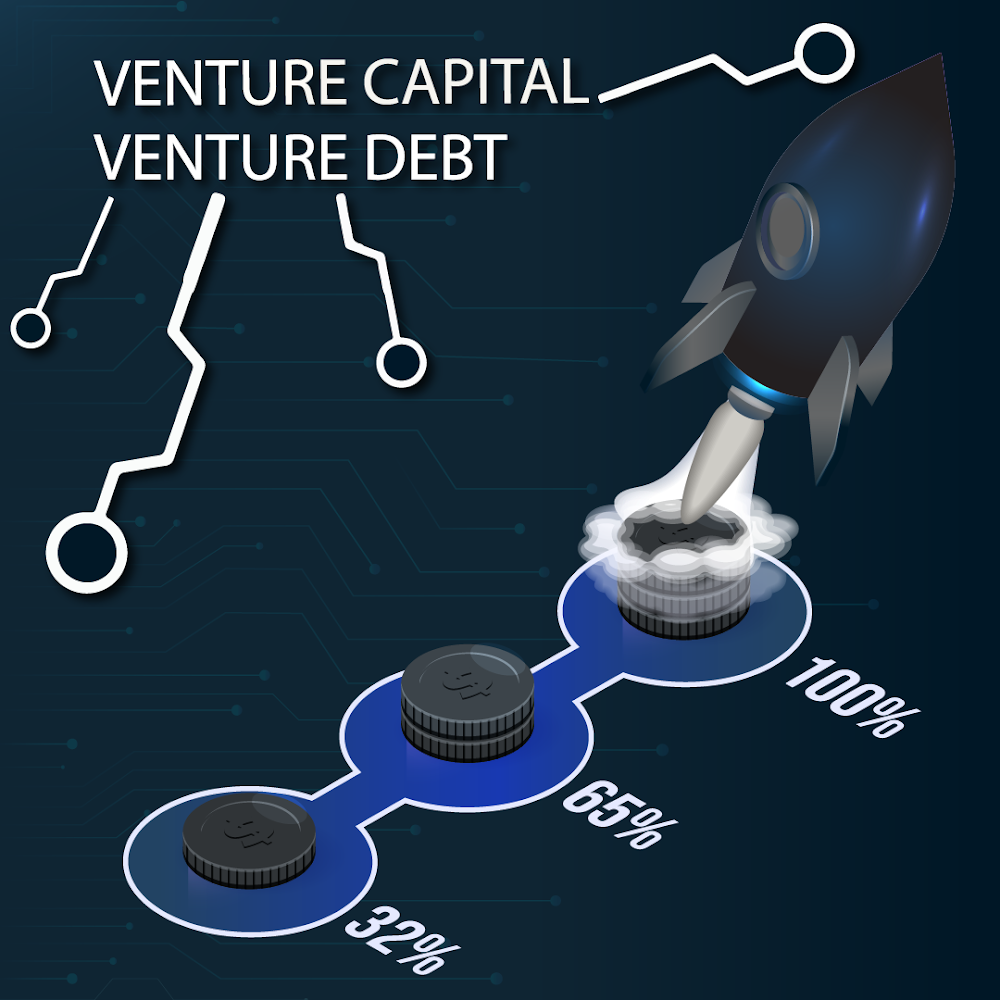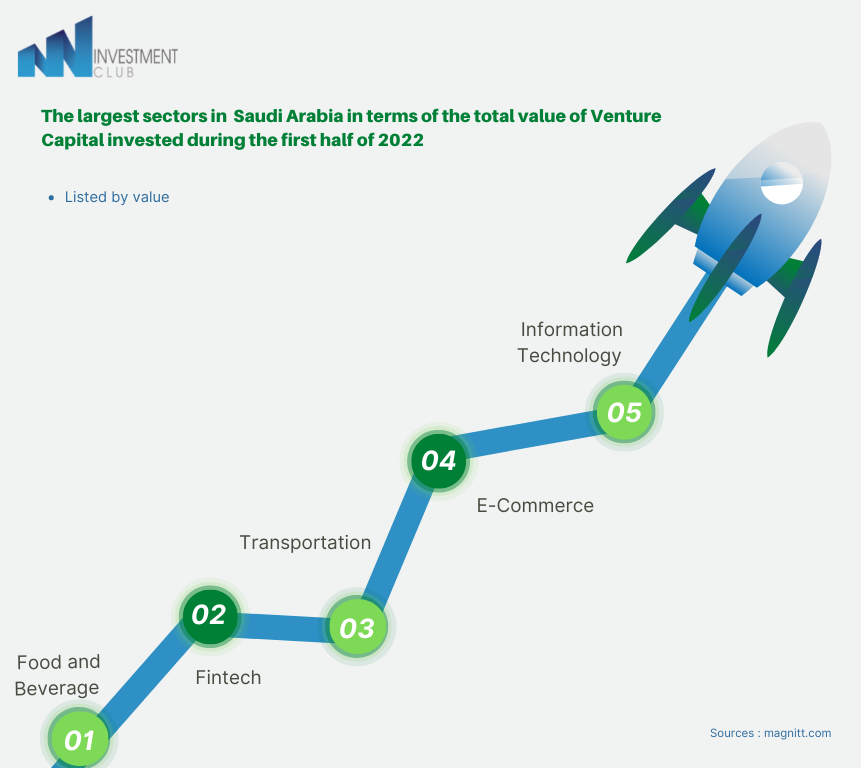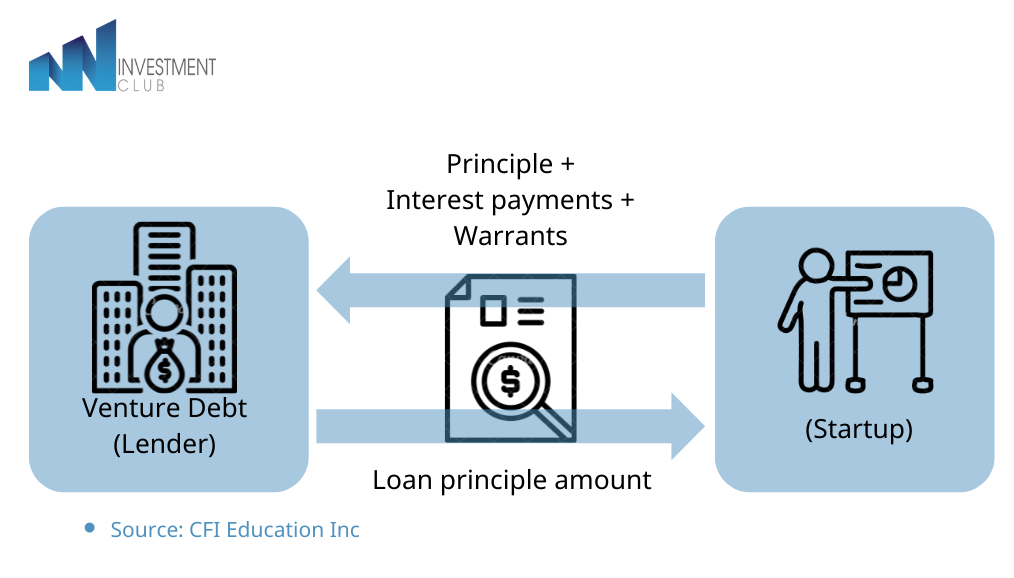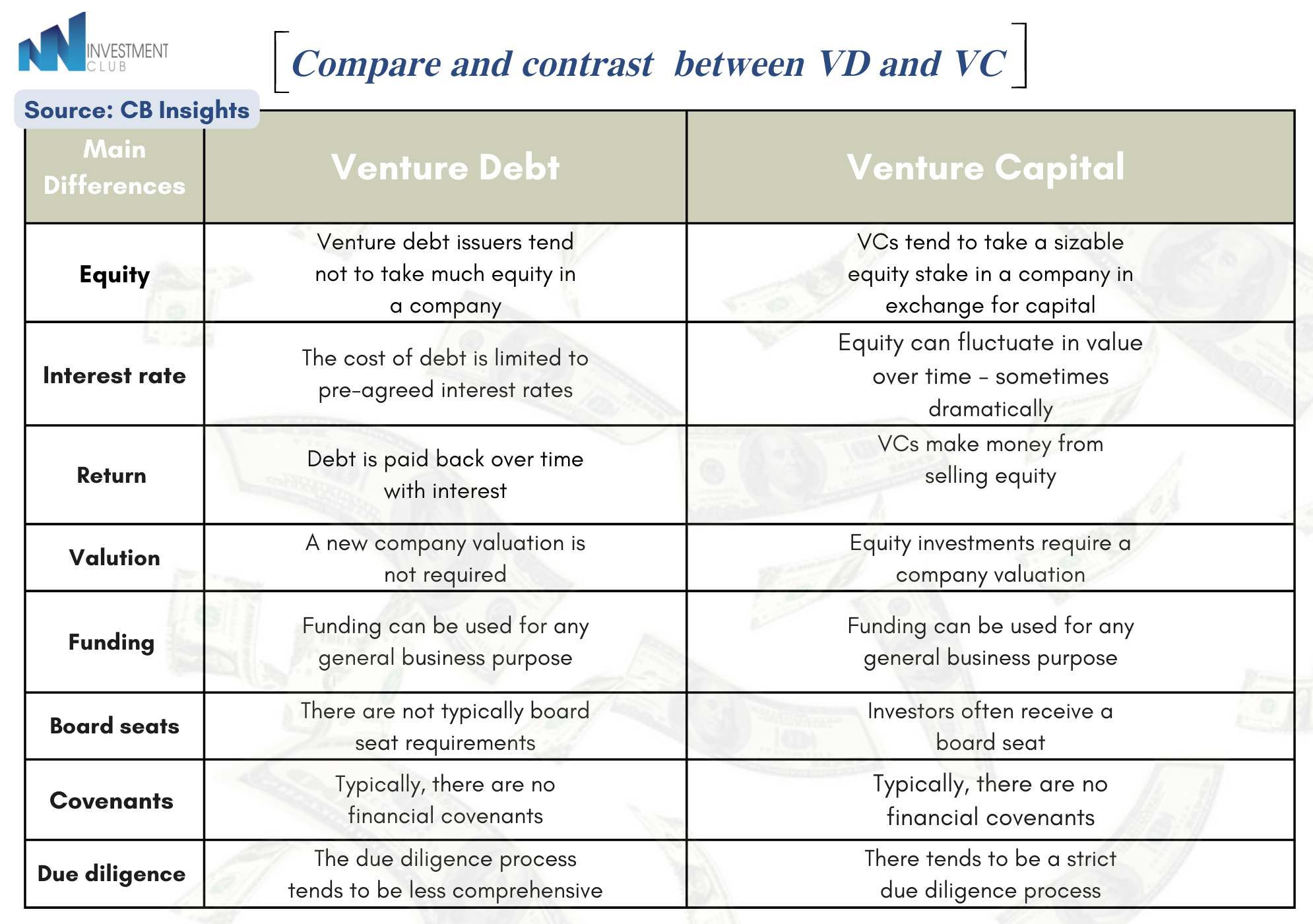Venture Capital & Venture Debt

Venture capital (VC) is a form of private equity and a type of financing that investors provide for start-ups and small businesses that are believed to have exceptional growth potential and the ability to sustain such growth over the long term.
In general, the source of Venture Capital is usually high-net-worth investors, investment banks, financial institutions, and regulated venture capital funds.
Contrary to the popular concept, venture capital is not always a cash investment, as it can be given to companies in the form of technical or management expertise.
Moreover, venture capital's control of the majority share in the startup company's shares is one of its main downsides as it may strip entrepreneurs from making decisions.
Venture capital (VC) is one of the most important elements of the Kingdom’s Vision 2030, and one of the foundations of the Kingdom’s economic strategy, which witnessed a growth of 244% during the first half of 2022, compared to the same period in 2021. Therefore, exceeding the total funds invested in Saudi startups in 2021 as a whole and boosting Investments with a record value of 2 billion and 190 million riyals in startup companies, moving the Kingdom of Saudi Arabia to the second place among the MENA as the largest market for attracting venture capital.
One of the Kingdom's most important initiatives in developing the financial sector was the establishment of the Saudi Venture Investment Company (SVC). a government-owned company, that was established in 2018 by Monshaat. Furthermore, today SVC aims to develop a venture capital system by investing 2.8 billion Saudi riyals ($750 million).

Venture Debt (VD) is a type of debt financing provided by banks and non-bank lenders and obtained by early-stage start-ups and high-growth companies, that is, designed for companies that prioritize growth before profitability.
This type of debt financing is usually used as a complementary method of proprietary financing (venture capital rounds) that start-ups receive.

Venture debt aims to close a financing gap in the financial market as it is difficult for start-ups to obtain traditional financing in the absence of credit record, and in their lack of assets or positive cash flow.
Instead, lenders protect their rights by creating a guarantee of the right to choose to buy the company's common shares to compensate for the risk of default and represent the total value of the right to choose to buy shares from 10 to 25% of the value of the principal.
The requirement that many start-ups are prevented from taking on venture debt is to demonstrate real and strong growth potential as previously mentioned, and the start-up must have raised funds from venture capital funds. Successful start-ups have borrowing opportunities of 30% to 50% of the total funds raised in the last round of venture capital financing.
Venture debt works differently from traditional loans, the venture debt period in general is short to medium-term (1-4 years).
Last year Saudi Venture Capital Company announced the launch of the investing product in funds offering debt instruments (Venture Debt Funds) This aims at diversifying sources of financing and closing existing financing gaps for start-ups and SMEs, enabling financial institutions to support private sector growth, which is one of the strategic pillars of the financial sector development program to meet the objectives of Vision 2030.
This year Saudi Venture Capital Company announced its investment in the venture debt fund managed by Partners for Growth (PFG) or the San Francisco-based Global Fund Management Company, with expertise in providing venture debt instruments to start-ups and SMEs, in close strategic partnership with Silicon Valley Bank.
The Fund's focus is on providing venture debt instruments to fast-growing start-ups and SMEs in the areas of technical, fintech, health care, and life sciences.

The following sources are helpful to get more information about Venture Capital and Venture Debt:
- https://thmanyah.com/podcasts/assouq/19
- https://enterprise.press/ar/stories/2022/02/06/%D8%A5%D9%86%D8%AA%D8%B1%D8%A8%D8%B1%D8%A7%D9%8A%D8%B2-%D8%AA%D8%B4%D8%B1%D8%AD-%D8%A7%D9%84%D8%AF%D9%8A%D9%88%D9%86-%D8%A7%D9%84%D9%85%D8%BA%D8%A7%D9%85%D8%B1%D8%A9-64313/
- https://www.svb.com/startup-insights/venture-debt/how-does-venture-debt-work
- https://www.eib.org/en/stories/what-is-venture-debt
- https://medium.com/@lucasgvf/venture-debt-101-f000b32e184e
- https://magnitt.com/news/a-comprehensive-101-guide-to-venture-debts-51761
Sources:
- https://jawlah.co/18798
- https://corporatefinanceinstitute.com/resources/knowledge/finance/venture-debt/
- https://rattibha.com/thread/1442541719430467588?lang=ar
- https://jawlah.co/31900
- https://www.cbinsights.com/research/venture-debt-venture-capital-vc-comparison/
Prepared by:
Sara Alotaibi
Shahad Alwahbi